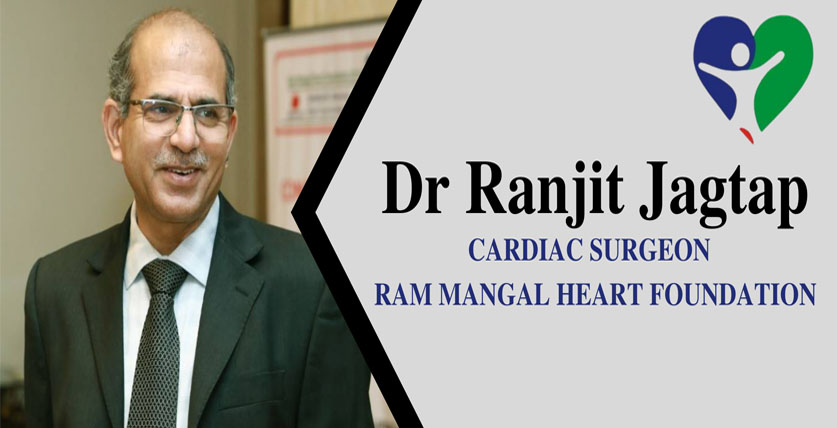Mental health refers to a person’s emotional, psychological, and social well-being, and it is an important part of total health. Mental health is concerned with how we think, feel, act, and make decisions, says Dr Ranjit Jagtap.
Short-term and long-term mental health illnesses can affect a person’s mood, behavior, thinking, and ability to relate to others. Trauma, sadness, anxiety, and stress all have an effect on the body.
Cardiovascular disease refers to cardiac problems such as heart attack and angina. In fact, along with smoking, high cholesterol, and high blood pressure, depression is now recognised as a significant risk factor for coronary heart disease. Many people who suffer from anxiety also suffer from depression.
Both heart disease and mental illness are frequent. As a result, it’s not surprising that these issues frequently occur together. The same factors that has link to a higher risk of heart disease such as a poor diet, lack of exercise, and smoking are found in people with mental health problems. New research that takes those potentially confounding elements into account now suggests the answer is yes.
The following are some of the most commonly studied mental health disorders associated with heart disease or related risk factors:
Mood Disorders: People with mood disorders, such as major depression or bipolar disorder, discover that their mood has a significant impact on their psychological and mental well-being virtually every day for the bulk of the day.
Anxiety Disorders: When confronted with certain objects or situations, people experience fear, dread, or terror. Generalized anxiety, social anxiety, panic disorders, and phobias are all examples of anxiety disorders.
Post-Traumatic Stress Disorder (PTSD): PTSD can occur after a traumatic life event, such as a war, natural disaster, or other serious incident.
Chronic Stress: People are in a constant state of uncomfortable emotional stress. It is accompanied by predictable biochemical, physiological, and behavioural changes, that lasts for an extended period of time.
What is the link between mental health problems and heart disease?
A research indicates that mental health has a link with risk factors for heart disease. These effects can occur directly, via biological pathways, or indirectly, via risky health behaviours.
According to Dr Ranjit Jagtap daughter, Aditi Jagtap, mental illness have can have physiologic impacts on the body. It also includes increased heart rate, decreased blood flow to the heart, and raised cortisol levels.
These physiologic effects can result in calcium buildup in the arteries, metabolic disease, and heart disease over time.
These disorders can develop following an acute heart disease event. This is due to the factors such as pain, fear of death or disability, and financial difficulties associated with the event.
Anxiety and sadness can make people more likely to engage in dangerous behaviours like smoking, being inactive, or not taking prescribed drugs. This is due to the fact that people suffering from a mental health disorder may have fewer healthy coping strategies for stressful situations.
What can be done to help people suffering from mental illnesses?
Aditi Jagtap Pune, health care systems, professionals, individuals, and researchers at Ram Mangal Heart Foundation take necessary actions to promote heart disease prevention and mental health.
What demographics are more likely to get heart disease as a result of mental health issues?
As a result of pre-existing mental health disorders, certain populations, such as the following, have higher rates of heart disease:
Veterans: Investigations discovered that veterans are at a higher danger for coronary illness, mostly because of PTSD because of battle.
Women: According to research conducted primarily on women. PTSD and depression connects to an elevated risk of coronary heart disease (CHD) morbidity and mortality.
Couples who have a PTSD sufferer: Couples with one or both spouses suffering from PTSD experienced more severe conflict, more rage. They also experience increase in cardiovascular response to conflict conversations than couples, according to studies. Couple disagreement may cause anger and physiological stress responses. This may increase the risk of CHD and heart disease in these situations.





